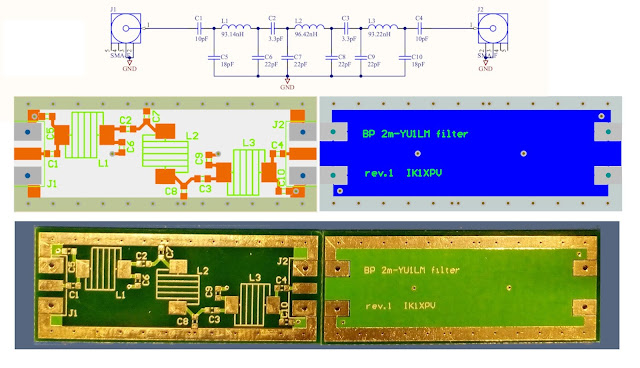ExtIO_sddc.dll v1.1 RC1
We need Experimenters' feedback to validate and test this release candidate.
The source repository contains code from many co-authors. I owe special thanks to Hayati Ayguen, Howard Su, Franco Venturi, Justin Peng and all the Others, their efforts are greatly appreciated and fundamental to the growth of this project. I'm learning a lot from them.
If you want to test this ExtIO_sddc.dll v1.1 RC1, follow these instructions (thanks to Franco Venturi) and download the https://github.com/ik1xpv/ExtIO_sddc/releases/download/v1.1/ExtIO_sddc_v1.1RC1.zip with already compiled dll here.
- Install HDSDR (you may want to have a second installation of this program under a different folder, for instance 'HDSDR experiments', so that you always have the well known good installation under 'HDSDR' untouched) - HDSDR can be downloaded from the usual place: http://hdsdr.de/
- You'll also need to extract/copy two additional files in the same folder where you installed the new copy of HDSDR (and possibly install Microsoft Visual C++ 2019 runtime; see below):
- ExtIO_SDDC.dll -> this is the actual ExtIO dll
- libfftw3f-3.dll -> this is the usual FFTW dll; it can be found here http://www.fftw.org/install/windows.html (make sure to select the 32-bit version), and you probably already have in your existing installation of HDSDR
- The ExtIO_sddc_v1.1RC1.zip file contains both these dlls for your convenience.
- If at run of HDSDR you get the message that says "The specified module could not be found"; Possibly you need VCRUNTIME140.dll and MSVCP140.dll these files are part of the Microsoft Visual C++ 2019 runtime, and can be found on this page: https://support.microsoft.com/en-us/help/2977003/the-latest-supported-visual-c-downloads (download and run the file called 'vc_redist.x86.exe'); since these files doesn't change, you need to run this step only once.
In case you find a bug please describe the behaviour that triggers it with an email to me ik1xpv[at]gmail.com; Or better create new issues here:
https://github.com/ik1xpv/ExtIO_sddc/issues







Comments
Post a Comment